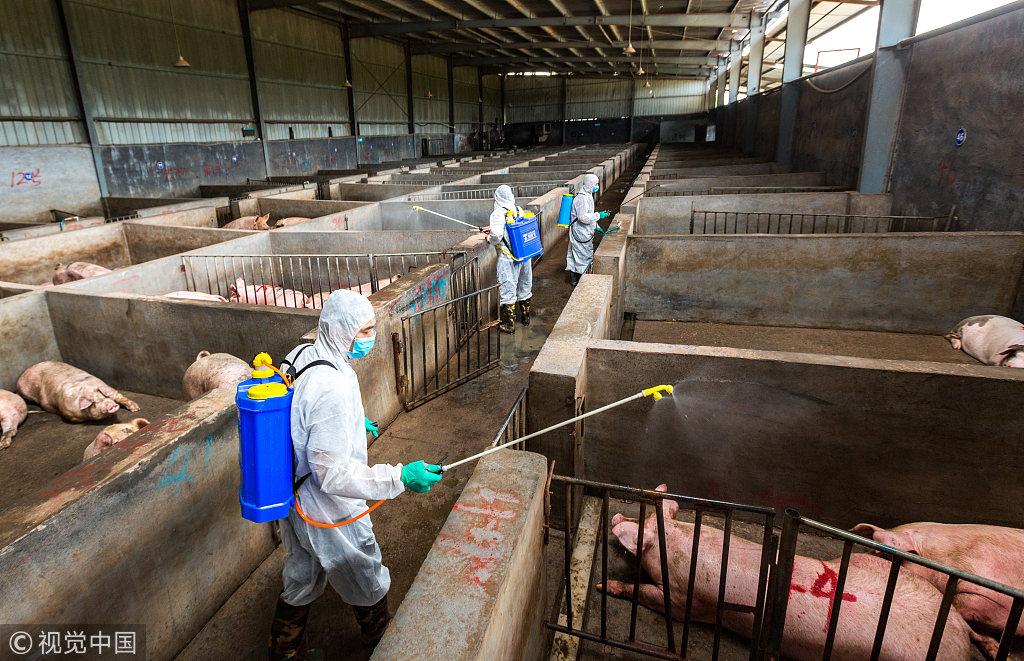Transparency best way to quell public fears about infected pork
China Daily | Updated: 2019-02-19 07:42

SEVERAL PHOTOS of what are allegedly files of the food safety departments in Gansu and Hunan provinces were widely circulated on the internet since last week. The files indicate that the dumplings and sausages of at least 11 meat processing companies may contain pork infected with the African swine fever virus. Beijing News comments:
The food inspection and quarantine departments of Gansu and Hunan have confirmed the authenticity of the photos, saying the cases are still under investigation, and they will not disclose the results until their investigations are finished.
Although this prudence is no doubt to ensure they find out the truth of the matter, it is worth noting that food safety scandals usually follow the pattern-an internet user exposes a problem, the media verifies the claims, the authorities confirm there is a safety issue.
The food safety departments certainly have their official procedures to follow when it comes to the disclosure of such sensitive information. But food safety hits a public nerve, and Article 10 of the Emergency Response Law stipulates that the response to an emergency shall be announced in a timely manner. In view of this, whether it is a meat product testing report of a particular brand, or an official letter issued by the relevant government departments, that fact that the pork products might be infected with the virus should have been announced to the public along with the fact that it did not pose a health risk.
The virus-which appeared in Kenya for the first time in 1921 and quickly spread to the rest of the world-does not infect humans and is killed at temperatures higher than 70 C, it is absolutely necessary to prevent it from entering food chains of husbandries and humans in case the virus mutates and does become a health threat to humans.
Although China takes resolute efforts to prevent and control the spread of the African swine fever virus, it had been transmitted to "many spots" in at least 19 provincial-level regions by the end of last month, since it was first discovered in Liaoning province last year.
That the 11 brands of meat products that were found in the "early stage" inspections in Gansu and Hunan include almost all big names in the industry is a reminder of melamine scandal in 2008 that severely damaged the public trust in the national dairy industry.
The State Food and Drug Administration, the State Administration for Market Regulation and the Ministry of Agriculture and Rural Affairs should respond to peoples' concerns. It is time to disclose all the early stage inspection results of the contaminated meat products. And the public should be informed of the investigation results as soon as they are known. Transparency is the most effective way to avoid public panic and nip rumors in the bud.
























